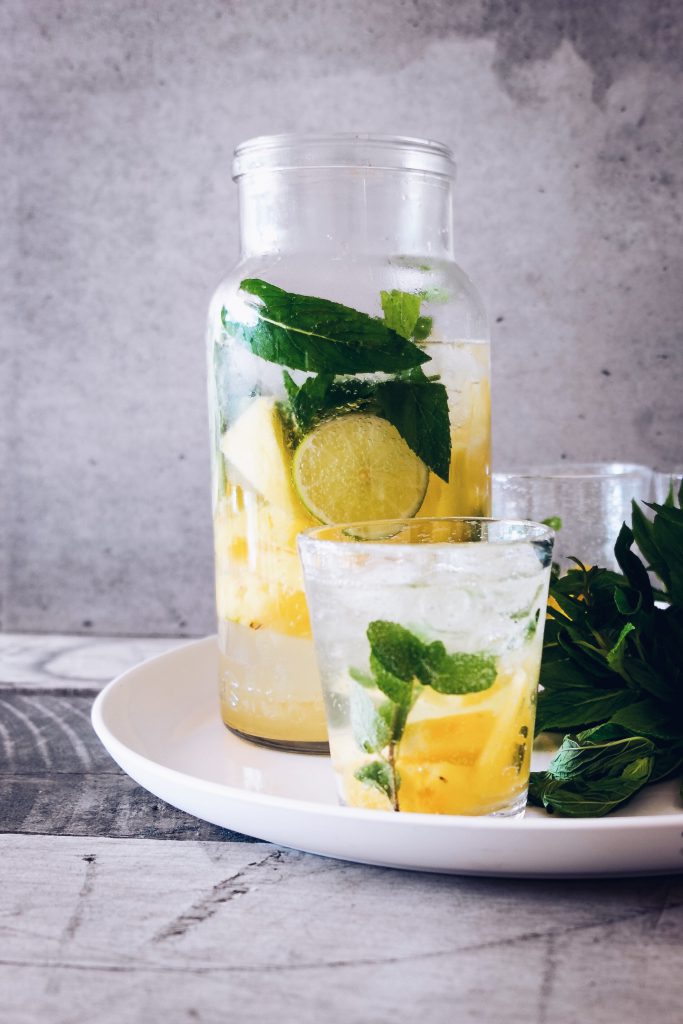Do hangovers get worse with age?
At this time of year, even the most sedate of us can end up attending several Christmas dos. An increasing problem as we age is is how to get ourselves going the next day.
In addition to all the festivities in the run up to Christmas, many of us are having a drinks at the pub, at home or popping over to a friend’s house the night before the big day. But why is it that as every year passes these evenings seem to take more of a toll on our bodies? In this blog, we’re tackling the question: Do hangovers really get worse with age?
The hangover
Hangovers themselves can be tricky. Chances are, you’ll be familiar with the symptoms: fatigue, headaches, thirst, nausea, dizziness. However, these symptoms often differ from person to person. An individual’s metabolism responds differently to certain alcoholic drinks too; you may find that one alcoholic drink makes you feel much worse than a different drink with similar alcohol content. Research into age and hangovers is sparse, but a number of body changes with age occur to mount some solid theories.

Liver let die
Our liver is a vitally important organ and faces a tough challenge following heavy consumption of alcohol. The liver breaks down or metabolises alcohol through enzymes. George Koob, director of the National Institute on Alcohol Abuse and Alcoholism in the United States, says: “One hypothesis is that we have fewer liver enzymes or that these enzymes do not work as efficiently the older we get.” This may result in alcohol lingering in the liver for longer, thus potentially prolonging a hangover.
Additionally, those late-night hunger pangs are going to pack more of a punch as the years go by. Your favourite 4am festive foods are likely to be high in saturated fat, which puts additional strain on the liver. This distracts your number one alcohol-processing organ, leaving more alcohol in your system for the morning.
Body fat and BAC
Your body will naturally gain more fat tissue as you get older. The natural increase in fat tissue results in a higher Blood Alcohol Concentration. This means that your bloodstream will be more alcohol-heavy than a younger person’s from the same quantity of alcohol. More alcohol in the bloodstream means more laborious work for your body the morning after the night before.

Tougher to tolerate
As we age our bodies take longer to recover. Some experts believe that hangovers are the result of a complex inflammatory response, pointing out that all insults to the body take longer to recover from as we age – whether it’s injuries, infection or the hit taken by an excessive alcohol binge.
There may also be a case for a general decrease in your tolerance to alcohol. As we get older, most of us tend to become more casual drinkers. Our body’s become unfamiliar with the constant peppering of big nights out, so when that Christmas party comes along, it certainly hits home hard.

Water content
Adding to the list of things we lose with age is our body’s water content. Hydration is essential for everyone, but becomes even more important when drinking alcohol. As our body’s water content decreases, alcohol remains in a more concentrated form in the system for longer. To avoid dehydration contributing to your proceeding day of hangover misery, try drinking a large glass of water in between drinks.
Medications and supplements
Medication and age tend to go hand-in-hand. The older we get, the more meds we find ourselves on. Some medications respond badly to alcohol and cause an impact in different ways: they can make you feel more intoxicated, leave you feeling nauseous and have a greater effect on your mood the following day. Medications that are known to react with alcohol include: anti-anxiety drugs, antibiotics, antidepressants, antihistamines, blood thinners and diabetes drugs. You should always ask your doctor or pharmacist about how your medications respond to alcohol.
Sleep
As we get older, grinding through the days on little sleep becomes tougher and tougher. Our day to day lives are filled with responsibility and routine, and disrupting that sleeping pattern can cause nothing but trouble. It’s more than just staying up late though. Many people consider alcohol to be a good sleep benefactor, colloquialised in its most charming sense as a ‘nightcap’, but here’s where the problem lies. Yes, you may find that a small drink of something before you go to bed will help you to drift off, which may be true, but what you’ll then experience is unnatural sleep.
Dr Matthew Walker, Professor of Neuroscience and Psychology at the University of California, says alcohol “fragments your sleep and makes your wake up much more, leaving you with nonrestorative sleep.” Alcohol also puts you in a state of sedation, which is not the same as natural sleep; alcohol blocks dream and REM sleep. So, you may have somehow still hit those seven or eight golden hours of slumber that you endeavour to reach, but it won’t give you the energy and focus that you need – think quality as well as quantity.
The solution?
The solution of course is not to drink in the first place. But if a few festive drinks help you to get in the Christmas spirit remember men and women are advised not to drink more than 14 units a week on a regular basis. Avoid “binge drinking” and spread your alcohol intake over three or more days if you regularly drink as much as 14 units a week. If you want to cut down, try to have several drink-free days each week.
All that’s left to say is Merry Christmas!

Medstars Medical Concierge Service
Looking for extra guidance when it comes to your healthcare? Sometimes interpreting medical information and making the best decisions can be daunting and complicated. Our private medical concierge service provides easy access to top UK health experts. We guide our patients with genuine choice and trust, offering a bespoke service for anyone in the world seeking private UK healthcare. Learn more about Medstars Medical Concierge Service. Want to learn more about providing our medical concierge service as an employee benefit? Learn more about Medstars Medical Concierge for Business.
